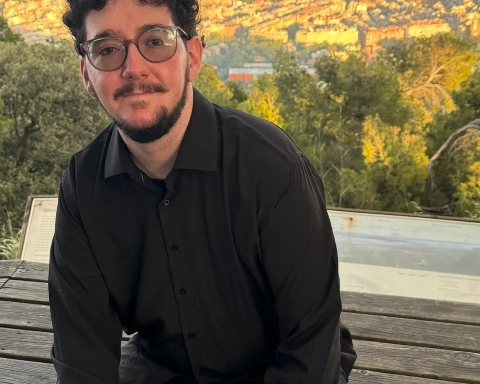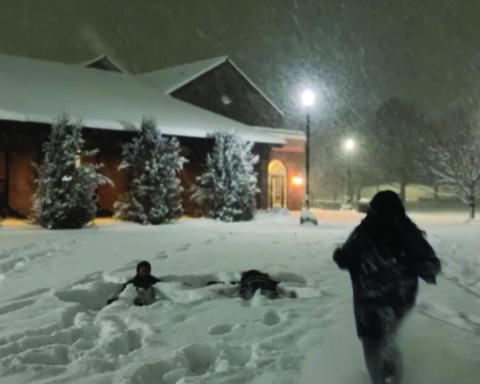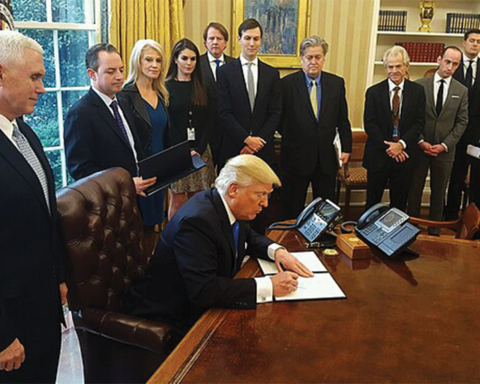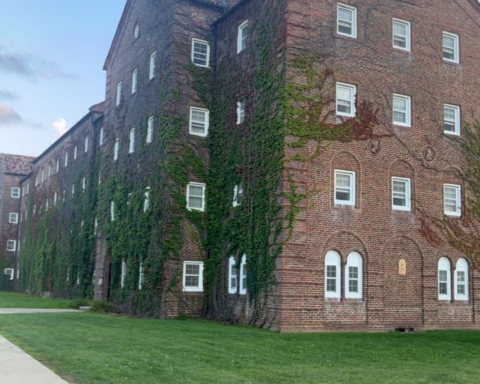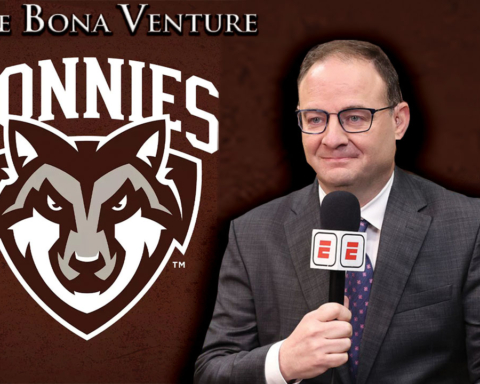By Julia Mericle
Managing Editor
A Special Olympics coaching clinic general meeting held on Tuesday prepared students for upcoming Special Olympics basketball coaching clinics to be held on Tuesday, Feb. 2 in Butler Gym.
Attendance at a Special Olympics coaching clinic general meeting is mandatory to attend the Special Olympics coaching clinics, which will take place between 3 to 5 and 6 to 8 p.m.
General sessions are held at St. Bonaventure University each fall and spring semester.
The fall session primarily trains students in ENACTUS, a campus organization that creates partnerships between students and business leaders, to coach Special Olympics on their annual leadership trip to the Bahamas. This year, the students learned to coach soccer. In the past, the students have coached track and field, softball and basketball, Paula Scraba, physical education professor, said.
The spring session primarily trains students who are enrolled in Clare 410 Senior Forum classes taught by Scraba.
Students in Scraba’s Clare 410 classes are required to take the national certification exam online through the national high school association of coaches, according to Scraba.
“What is nice with the senior forum is you are being trained as an event director and then you are being assessed and evaluated by Special Olympics of New York for running an event,” Scraba said.
Katherine Arredondo, a senior sports studies major who acted as events director of the Special Olympics events at Bonaventure last year, said the job was challenging.
“I feel like my job was more like lending my hand to each student and committee. There were times where you could tell they would get overwhelmed with the role they had to play and it was more of my job to constantly remind them of the excellent job they were doing,” Arredondo said.
Coordinators of Special Olympics, Bill Collins and Robert Mitchell, trained Scraba to be a clinician.
Now, Scraba will help train new volunteer coaches to learn team and individual basketball competitions at next week’s coaching clinics.
“What the people that will be coming next week will learn is what those events are, how to set it up, how to run it, how to score it. Also they learn techniques of coaching, like how to teach dribbling, how to teach shooting,” Scraba said.
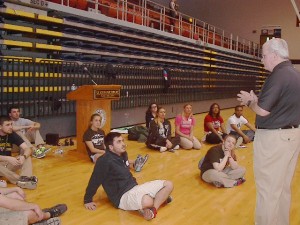
According to Scraba, in the Special Olympics, which is the largest amateur sport organization in the world, there is a professional coaching guide in which every Special Olympics sport competes in on their website.
“These manuals are put together by the top people in the world,” Scraba said. “For example, when they first started putting these coaching guides together, the soccer guide, one of the main clinicians was Pele, who at the time was the known soccer player in the world from South America.”
Scraba said Special Olympics also consistently coaches volleyball during the spring semester. Carl Case, Ph.D., management professor, is the coach for the local Special Olympics adult volleyball team.
A volleyball coaching clinic, run by Case, is set for March 15. Coaches and athletes will meet every Tuesday night from that date until the end of April between 6 and 7 p.m. in the Butler gym.
The athletes train for the regional and state competitions, held in May and June, respectively.
Anyone can volunteer to help. Scraba encouraged students from all majors to get involved.
According to Scraba, journalism students handle the public relations of the program, sports studies students handle logistics of coordinating the set up, education students act as liaisons with public schools, biology students work with the medical emergency response team (MERT) and ROTC students conduct the opening and closing ceremonies.
Scraba said it is important for volunteer coaches to know how to coach both individual and team competitions.
“For example, you might have someone in volleyball who has an exceptional serve, but has difficulty playing on a team,” Scraba said. “So that person could participate in the five individual volleyball events and could win a gold medal just on their ability to serve.”
Playing in a team situation might not be conducive to the athlete’s abilities, Scraba said.
“We don’t want to set someone up to be part of a situation that is going to be discouraging for them,” Scraba said. “We want to put athletes in competitive events that they are going to enjoy and that they can succeed in.”
Arredondo provided advice to those in leadership positions of the Special Olympics coaching events this semester.
“My advice for anyone who is taking this course and is managing the event is to be organized,” Arredondo said. “There is a lot of paperwork and emails going back and forth, therefore, organization is key for the success of this event.”
Scraba said another important aspect of Special Olympics is providing athletes will the opportunity to build relationships with the Bonaventure students.
“Its not just playing the sport. It’s helping our students to understand why you play a sport,” Scraba said. “You play a sport because you enjoy it. It’s a time to socialize with your friends. These athletes have the same desires or anticipated enjoyments for why they participate in a sport.”
mericlje13@bonaventure.edu

